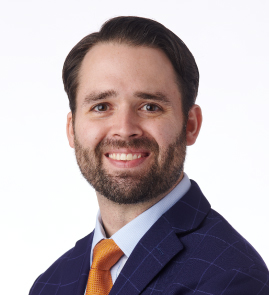Let’s create the world’s best medical search engine.
This search engine must have a basic knowledge of human anatomy and an understanding of physiology and mechanisms of disease. It must be able to create a broad differential diagnosis including the most common diseases as well as uncommon diseases with rare associations. This search engine must be able to interact with patients in order to observe non-verbal cues, body language, general appearance, and understand how these and other subtle observational nuances contribute to the overall health of the patient. The world’s best medical search engine must be able to interpret physical exam findings acquired with various exam techniques perfected over thousands of iterations to differentiate normal from pathologic, and be able to recommend additional lab tests, imaging studies, or surgical interventions needed for diagnosis. It must appreciated the different costs of each test and take into consideration the importance of minimizing costs while maximizing care. The world’s best medical search engine must understand the evidence supporting various treatments, risks and benefits of each, and possible alternatives. It must be able to recognize potential barriers to treatment including access to care, patient understanding/education, and various levels of compliance, and, finally, this search engine must determine an expected time frame until symptom improvement, appropriate follow-up, and when to seek a specialist referral or second opinion.
What should we call our search engine? Google MD? Wikipedia-Plus? The Ultimate WebMD?
Let’s call our search engine, Doctor.
Let’s request that individuals interested in becoming such a search engine acquire a broadly based undergraduate education including several foundational science courses, followed by two years of full-time medical courses and two years of various clinical experiences with patients of all demographics and ages. These students, now almost six years into medical training, will then work between 60-80 hours each week for an additional 3-7 years before beginning the practice of medicine, followed by a career of continuing medical education courses and medical licensure recertification exams, not to mention the continuous expansion of medical knowledge and clinical/surgical proficiency by seeing patients on a daily basis.
The e-patients of today are engaged, educated, and enthused, seeking to learn as much as possible about their health using electronic resources. Interestingly, however, today’s e-patients occasionally underestimate the value in seeking medical advice from a doctor, trusting instead whichever blog or website appears most popular in search engine results independent of the quality of the information. Never have I recognized this tendency to trade qualified medical advice from a licensed physician for e-patient crowdsourcing than when a friend of mine recently posted on Facebook that they had been searching online for an explanation of their daughter’s recurrent ear infections but wanted to know what their collection of Facebook friends thought might be causing her illness as well as any treatment recommendations. When I recommended that this friend of mine call their pediatrician instead of solely relying upon Google and Facebook medical crowdsourcing, I realized that today’s physicians truly represent the world’s best medical search engine, combining medical knowledge, communication, diagnostic skills, and treatment expertise in a way that, at least to date, has not been replicated in any electronic resource. While I applaud, respect, and appreciate the engaged, enthused, and educated e-patients that I am privileged to see on a daily basis, I hope that today’s e-patients recognize that no electronic resource will ever rival the features included in the world’s best medical search engines, the physicians of today.











